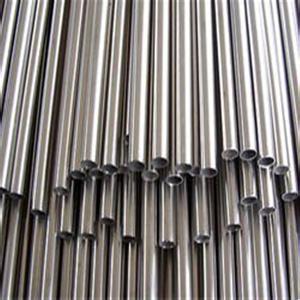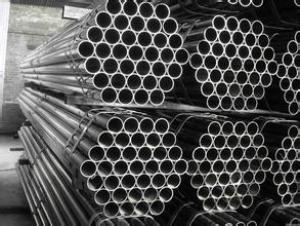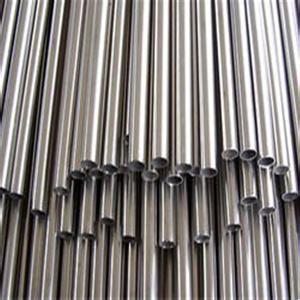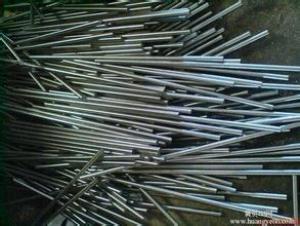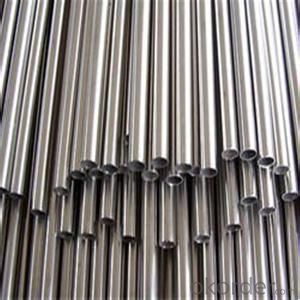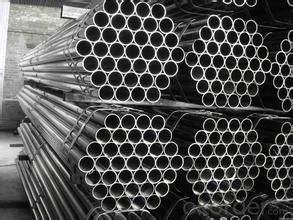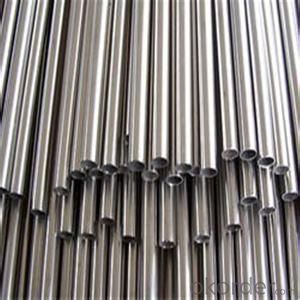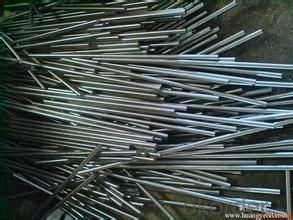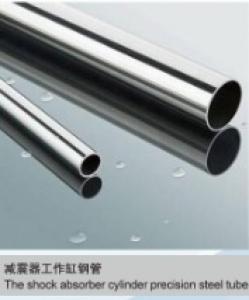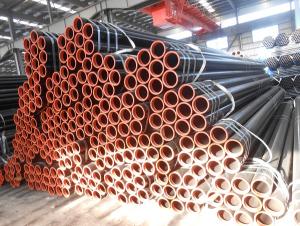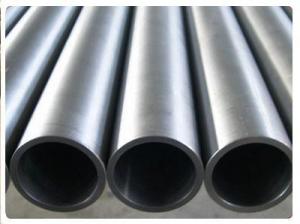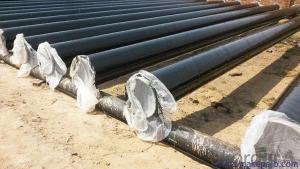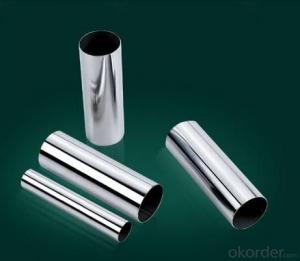Automobile and Motorcycle Oil Cylinder Precision Seamless Steel Pipe
- Loading Port:
- China Main Port
- Payment Terms:
- TT or LC
- Min Order Qty:
- 25-35 m.t.
- Supply Capability:
- 1000T m.t./month
OKorder Service Pledge
OKorder Financial Service
You Might Also Like
Product Description
| 1.COMMODITY NAME | CARBON SEAMLESS STEEL PIPE |
| 2.STANDARD | JIS G3441,JIS G3444,JIS G3445; EN10305-1,EN10305-2; DIN2391; GB/T3639 |
| 3.MATERIAL | ST35,ST45, ST52 |
| 4.OUTER DIAMETER | 6-60MM |
| 5.WALL THICKNESS | 0.1-30MM |
| 6.LENGTH | 5.8M,6M,9M |
| 7.DELIVERY TIME | 20-40 DAYS AFTER SIGNING THE CONTRACT OR AS CUSTOMER' DEMAND |
| 8.BOTH OF ENDS | PLAIN ENDS OR BEVELED ENDS,PROTECTING CAPS |
| 9.PAKCING | IN HEXAGONAL PACKAGE TIED WITH STEEL STRIPS |
| 10.APPLICATION | A.OIL CYLINDER TUBE |
| 11.THE THIRD PARTY INSPECTION | SGS, BV OR AS CUSTOMER'S DEMAND |
| 12.PROCESS TECHLONOGY | COLD-DRAWN |
| 13.CERTIFICATE | ISO/TS 16949:2009 |
FAQ of Seamless Pipe :
①How is the quality of your products?
Our products are manufactured strictly according to national and internaional standard, and we take a test on every pipe before delivered out. If you want see our quality certifications and all kinds of testing report, please just ask us for it.
Guaranteed: If products’ quality don’t accord to discription as we give or the promise before you place order, we promise 100% refund.
②How about price?
Yes, we are factory and be able to give you lowest price below market one, and we have a policy that “ for saving time and absolutely honest business attitude, we quote as lowest as possible for any customer, and discount can be given according to quantity”,if you like bargain and factory price is not low enough as you think, just don’t waste your time.Please trust the quotation we would give you, it is professional one.
③Why should you chose us?
Chose happens because of quality, then price, We can give you both.Additionally, we can also offer professional products inquiry, products knowledge train(for agents), smooth goods delivery, exellent customer solution proposals.Our service formula: good quality+good price+good service=customer’s trust
SGS test is available, customer inspection before shipping is welcome, third party inspection is no problem.
Any question, pls feel free to contact us !
Seamless Pipe Images:
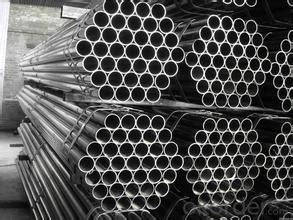
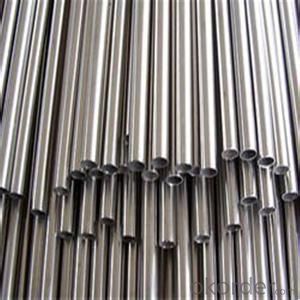
- Q: What are the safety precautions to follow while working with steel pipes?
- To ensure a safe working environment when dealing with steel pipes, it is crucial to adhere to specific safety measures. Consider the following key precautions: 1. Personal Protective Equipment (PPE): Always wear appropriate PPE, such as safety goggles, gloves, steel-toed boots, and a hard hat. This will shield you from potential hazards like falling objects, sharp edges, or flying particles. 2. Practice proper lifting methods: Given that steel pipes can be heavy and unwieldy, employ correct lifting techniques like bending your knees and utilizing your leg muscles to avoid straining your back or causing musculoskeletal injuries. 3. Secure the work area: Eliminate any clutter or obstacles in the work area that may present a tripping hazard. Ensure that the pipes are stored and secured adequately to prevent rolling or falling. 4. Exercise caution around sharp edges: Steel pipes often possess sharp edges that can cause cuts or punctures. Handle them with care and consider using protective covers or gloves to prevent injuries. 5. Utilize appropriate tools: Use the correct tools and equipment for cutting, welding, or manipulating steel pipes. Adhere to manufacturer instructions and guidelines to ensure safe usage. 6. Avoid working in confined spaces: Working in cramped areas presents significant risks. If necessary, ensure proper ventilation and adhere to confined space entry protocols to prevent asphyxiation or other hazards. 7. Adhere to proper welding procedures: When welding is involved, follow appropriate welding procedures and guarantee adequate ventilation in the workspace. Employ fire-resistant blankets or screens to protect nearby combustible materials. 8. Be cautious of hot surfaces: Steel pipes can become hot during welding or other processes. Utilize appropriate insulation or heat-resistant gloves to safeguard yourself against burns or heat-related injuries. 9. Establish effective communication: Establish clear channels of communication with colleagues, especially during tasks like lifting or moving heavy objects. Use hand signals or verbal communication to ensure everyone is on the same page and to prevent accidents. 10. Regularly inspect tools and equipment: Before commencing any task, inspect tools, equipment, and scaffolding for damages or defects. Report and replace any faulty equipment to prevent accidents. Always prioritize safety when working with steel pipes. By adhering to these precautions and using common sense, you can guarantee a safe working environment for yourself and your colleagues.
- Q: How do you calculate the bending moment of a steel pipe?
- To determine the bending moment of a steel pipe, one must take into account both the applied load and the structural characteristics of the pipe. The bending moment quantifies the internal forces within the pipe caused by the applied load. To calculate the bending moment, one can use the following equation: Bending Moment = Load x Distance In this equation, the load represents the external force acting on the pipe, and the distance refers to the separation between the point of load application and the point where the bending moment is being evaluated. For an accurate bending moment calculation, it is necessary to consider the properties of the steel pipe. These properties encompass the pipe's cross-sectional area, second moment of area (also known as the moment of inertia), and the modulus of elasticity. The second moment of area demonstrates the pipe's resistance to bending and can be computed based on the dimensions of the pipe's cross-section. The modulus of elasticity signifies the pipe's stiffness and can be obtained from material properties data. Once the load, distance, cross-sectional area, moment of inertia, and modulus of elasticity are determined, they can be inputted into the bending moment equation to ascertain the bending moment for the steel pipe. It is important to recognize that the calculation of bending moment assumes linear elastic behavior, which implies that the pipe does not surpass its elastic limit nor undergo plastic deformation. If the pipe is exposed to loads surpassing its capacity, the bending moment calculation may not accurately depict the actual behavior of the pipe. In such instances, it is recommended to consult a structural engineer or employ more sophisticated analysis methods to precisely evaluate the bending moment.
- Q: How are steel pipes used in the oil and gas industry?
- Steel pipes are extensively used in the oil and gas industry due to their durability and strength. They are used for various purposes like drilling, transportation, and processing of oil and gas. Steel pipes are employed in drilling wells, providing a conduit for the extraction of oil and gas from the ground. Additionally, they are used for gathering and transporting hydrocarbons from the wellhead to processing facilities or storage tanks. Steel pipes also play a crucial role in the construction of refineries and petrochemical plants, where they are used for the transportation of various fluids and gases involved in the refining process.
- Q: What is a valve and how is it used in steel pipes?
- A valve is a device used to control the flow of fluid or gas within a system. In steel pipes, valves are used to regulate and control the flow of liquids or gases by opening, closing, or partially obstructing the passage within the pipe. They are essential for redirecting or stopping the flow, ensuring the safe and efficient operation of the steel pipe system.
- Q: What does the diameter of a steel pipe project mean?
- Generally, the diameter of steel pipe has three common diameters: outer diameter, inner diameter and nominal diameter.The first two are well understood.Nominal diameter refers to the national standard to specify the general diameter of a certain national standard pipe. It is only a model representation. It is neither outer diameter nor inner diameter.
- Q: Can steel pipes be used for underground compressed air pipelines?
- Yes, steel pipes can be used for underground compressed air pipelines. Steel pipes are commonly used for underground pipelines due to their strength and durability. They have the ability to withstand high pressure and can resist corrosion and other environmental factors. Steel pipes are also known for their long lifespan, making them a reliable choice for compressed air pipelines. However, it is important to ensure that the steel pipes are properly coated and protected to prevent any potential corrosion issues. Additionally, proper installation and maintenance of the pipelines are crucial to ensure their efficiency and safety.
- Q: What are the safety precautions for handling steel pipes?
- To prevent accidents and minimize the risk of injury when dealing with steel pipes, it is crucial to implement various safety measures. Consider the following key safety precautions: 1. Personal Protective Equipment (PPE): Ensure that you wear suitable PPE, such as safety glasses, hard hats, steel-toed boots, and gloves. This will shield you from potential hazards, including falling objects, sharp edges, or chemical spills. 2. Proper Lifting Techniques: Employ correct lifting techniques to avoid strain or back injuries when lifting steel pipes. Bend your knees, maintain a straight back, and use your legs instead of your back to lift. Seek assistance or employ mechanical lifting equipment if the pipe is too heavy. 3. Secure Storage and Stacking: Organize the storage of steel pipes meticulously, ensuring that they are stacked and secured appropriately. Utilize suitable storage methods like racks or pallets to prevent pipes from rolling or falling. Avoid excessive stacking to maintain stability. 4. Inspect for Defects: Prior to handling steel pipes, examine them for defects like cracks, corrosion, or dents. Identifying and removing defective pipes is vital as they can pose serious safety risks. 5. Use Appropriate Handling Equipment: When moving or transporting steel pipes, make use of suitable equipment like forklifts, cranes, or hoists. Verify that the equipment is in good working condition and always adhere to the manufacturer's guidelines for safe operation. 6. Secure Transportation: When transporting steel pipes by vehicle, ensure that they are securely fastened to prevent shifting or falling during transit. Use restraints like straps or chains to secure the load. 7. Watch for Sharp Edges: Exercise caution when handling steel pipes as they may have sharp edges that can cause cuts or injuries. Wear gloves to protect your hands. 8. Communication and Training: Establish effective communication with your team members to ensure that everyone understands the correct handling procedures and safety precautions. Conduct training sessions on safe lifting techniques, equipment operation, and hazard identification. 9. Maintain a Clean Work Area: Keep the work area clean and free from debris, oil, or other slippery substances that may lead to slips or falls. 10. Follow Safety Guidelines: Always adhere to safety guidelines and procedures set by your organization or relevant regulatory authorities. These guidelines may include additional precautions specific to your work environment. By diligently following these safety precautions, you can significantly reduce the likelihood of accidents and injuries when handling steel pipes. Remember, prioritizing safety is paramount in any work environment.
- Q: What are the different types of steel pipe bends?
- There are several types of steel pipe bends, including long radius bends, short radius bends, and induction bends. Long radius bends have a larger radius and are used when a gentle bend is required. Short radius bends have a smaller radius and are used when a more abrupt bend is needed. Induction bends are created using a heating process to achieve specific bend angles and radii.
- Q: What are the safety measures to consider when working with steel pipes?
- When working with steel pipes, it is important to consider several safety measures. Firstly, wearing appropriate personal protective equipment (PPE) such as gloves, safety glasses, and steel-toed boots is crucial to protect against potential injuries. Secondly, ensuring proper ventilation in the work area is important to avoid inhalation of harmful gases or fumes. Additionally, practicing proper lifting techniques and using mechanical aids when handling heavy pipes can prevent strains or back injuries. It is also essential to be cautious of sharp edges or protruding objects on the pipes and to secure them properly to prevent accidents. Lastly, following established safety protocols, such as conducting regular inspections and adhering to lockout/tagout procedures, helps minimize the risk of accidents or equipment malfunctions.
- Q: How do you repair a damaged steel pipe?
- To repair a damaged steel pipe, you can follow a few steps. First, identify the extent of the damage, such as cracks or holes. Next, clean the damaged area using a wire brush or sandpaper to remove any rust, debris, or old paint. Then, apply a suitable epoxy or sealing compound to seal the crack or hole. For larger damages, welding or brazing may be necessary. Finally, ensure the repaired area is dry and properly cured before testing the pipe for leaks or further issues.
Send your message to us
Automobile and Motorcycle Oil Cylinder Precision Seamless Steel Pipe
- Loading Port:
- China Main Port
- Payment Terms:
- TT or LC
- Min Order Qty:
- 25-35 m.t.
- Supply Capability:
- 1000T m.t./month
OKorder Service Pledge
OKorder Financial Service
Similar products
Hot products
Hot Searches
Related keywords
